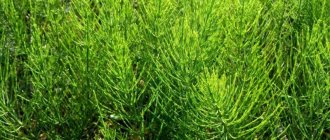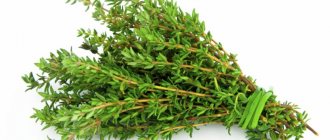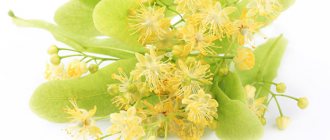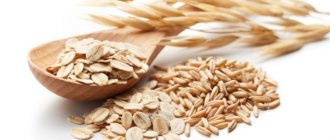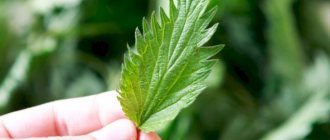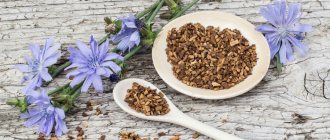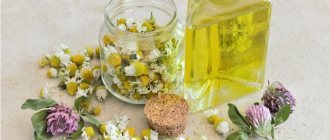Category: Folk recipes
Beneficial properties of kombucha
Kombucha is a kind of living creature that lives in people's homes in a tea solution. In addition to tea mushroom, it has other names: Indian mushroom, Japanese, sea, Lyon and others. It does not even remotely resemble an ordinary mushroom, but rather a whitish-yellowish, sometimes yellow-brown jellyfish. The body of the fungus is made up of strains of microorganisms - yeast and acetic acid bacteria.
The mushroom infusion contains vitamins PP, C, as well as group B, many organic acids, sugar, caffeine, ethyl alcohol, amino acids: lipase, amylase and protease, pigments, lipids, which determine the harmful and beneficial properties of kombucha.
Kombucha is a delicious drink!!!
Beneficial properties of kombucha
Everyone has probably heard about the beneficial properties of kombucha. With the help of a drink made from kombucha, diseases of the gastrointestinal tract, liver, chronic enterocolitis, tonsillitis, and influenza are treated. The bactericidal properties of the fungus give the right to use it in the treatment of purulent wounds, sore throat, conjunctivitis, and hemorrhoids.
Tea kvass is very useful for nervous disorders and hypertension.
Kombucha helps in the treatment of even infectious diseases such as typhus, scarlet fever, diphtheria, dysentery, and tuberculosis. Although, of course, this is only an auxiliary remedy and traditional treatment cannot be neglected.
The ability of the mushroom to neutralize toxins allows it to be used to relieve hangovers (we hope this information is not relevant for you;)).
In addition, kombucha infusion is very actively used in cosmetology.
Contraindications for use, side effects
Despite the great popular love and all the known beneficial properties of kombucha, it is not so harmless. And you can’t discount its contraindications, so as not to harm yourself.
Although the infusion is called such a cool word “kvass,” it is still a medicinal drug. It should not be consumed by people with diabetes, people who have fungal diseases and people with high acidity.
Many people advise drinking tea kvass for weight loss. But according to medical sources, precisely because of the high sugar content, kombucha infusion is not recommended for overweight people to drink.
If there are no contraindications to the use of the infusion, it should be taken after meals after 2 hours.
Side effects from taking tea kvass include a decrease in blood pH, destruction of red blood cells, the development of nephrosis, blood clotting disorders, liver and kidney damage. Side effects occur when tea kvass is consumed regularly in large quantities.
How to use the beneficial properties of kombucha: recipes
Colds
For colds, take half a glass of slightly warmed mushroom infusion diluted with water in a 1:2 ratio two hours before meals. For sore throat and stomatitis, use an infusion no older than a week to rinse several times a day. The pain is relieved on the second day.
Treatment of gastrointestinal diseases
Thanks to its beneficial properties, kombucha is able to normalize the digestive process, increases appetite, relieves bloating by destroying putrefactive bacteria, and has a laxative effect. Therefore, it is used for constipation - half a glass an hour before meals.
In order to treat gastrointestinal diseases, it is useful to add natural honey (a teaspoon per glass) to a weekly infusion of the mushroom.
For gastrogenic enterocolitis and enteritis, take 100 milliliters of infusion two hours before meals.
The same dosage schedule is for dysentery.
If the dysentery is bacterial, the mushroom is infused with pomegranate peels or burnet or galangal roots and drink 100 milliliters 2 hours before meals.
The amount of peels is from one medium pomegranate to a three-liter jar. Take 1 tablespoon of dry roots, brew it like tea and, after cooling, add it to a jar with mushroom (the solution should be sweet).
The second method is to mix the ready-to-use solution with a herbal decoction.
For diarrhea, the mushroom infusion is also infused with galangal root, pomegranate peels or burnet and taken orally two hours before meals.
Skin diseases
To treat these diseases, the bactericidal beneficial properties of kombucha are used. For pustules and conjunctivitis, the infusion should be taken orally at a dose of 50 milliliters an hour before meals, and also rinse problem surfaces with it or make lotions and apply to pustules and wounds.
The same treatment applies to frostbite.
For burns, the infusion of the mushroom is taken orally, and a piece of the mushroom is applied to the sore spot. After drying, replace it with a new one.
Kombucha is also useful for the prevention of caries, and is also a remedy for stomatitis. Only in this case, a mushroom infusion is used not with black, but with green tea (read more about the properties of green tea in the article “The benefits and harms of green tea”). Kombucha infusion is recommended for rinsing the mouth every time after eating.
Hypertension
Despite all its beneficial properties, an infusion of kombucha does not heal, but only promotes treatment when using medications to lower blood pressure, normalize sleep, and normalize the functioning of the nervous system. For these purposes, you need to take half a glass of mushroom infusion with honey two hours before meals.
See also "Products that lower blood pressure."
Cosmetology
In this area, the infusion of kombucha has found the widest use, and all its beneficial properties cope with the task in the best possible way. They take baths with it, adding a month’s infusion of the mushroom to the water - any amount, but not more than 1 liter.
The mushroom is also useful for hair care. It helps against hair loss, dandruff, eliminates fragility, dullness, and greasiness. Use the infusion as a rinse after washing your hair. Rinse with a month-old infusion.
To treat dandruff, a month-old infusion should be rubbed into the scalp.
In case of intense hair loss, rinse your hair with a month-old infusion every time after washing your hair, and take the usual infusion, a glass a day, an hour before meals.
The beneficial qualities of kombucha for facial skin cannot be neglected. Kombucha infusion is used to wipe the face, preparing lotion from it. To do this, mix the infusion and mineral water in equal quantities. You can also freeze the infusion and wipe your face with ice cubes. The skin will become soft and smooth.
Is kombucha good for pregnancy and breastfeeding?
Expectant mothers are careful about what they eat and drink. And rightly so! However, in the case of kombucha there is no need to fear. The beneficial properties of kombucha will come in handy during pregnancy, of course, if there are no contraindications due to illness. Pregnant women are allowed to drink kombucha infusion, as it strengthens the protective properties of the body of both mother and child.
There are no special contraindications during breastfeeding. The mushroom infusion should be taken according to general instructions. Some sources even recommend starting to give the baby a diluted infusion of the mushroom from the age of six months. Although it's still not worth the risk. At this age, the baby has enough mother’s milk for immunity.
How to care for kombucha
It is best to keep the “jellyfish” in a three-liter jar, covered with gauze, out of reach of sunlight. Like any living organism, kombucha needs to be looked after and its home, the jar, needs to be kept clean. The mushroom itself should also be carefully washed with warm water every week.
It lives in a moderately sweet solution of black tea. The room temperature should be room temperature, not lower than 17 and not higher than 35 degrees. If the temperature regime is disturbed, the vital activity of the fungus slows down.
A healthy mushroom should float in the top layer of liquid.
The tea solution is prepared at the rate of a couple of tablespoons of sugar and a couple of tea leaves per liter of water. There are no exact proportions - it should just be sweet tea. In winter, once every 5-6 days, and in summer, once every 2-3 days, half of the solution from the jar must be drained for use, and a new one should be added to the remaining half.
If you want to fully experience all the beneficial properties of kombucha, take care of your “pet” correctly, do not forget to rinse it, change the tea and... be healthy!
Also read:
How does kombucha help pregnant women?
Kombucha contains:
- acetic acid bacteria;
- yeast;
- vitamins B group and PP;
- ascorbic acid;
- caffeine;
- sugar;
- amino acids and organic, etc.
Among the useful properties are the ability to:
- increase immunity;
- eliminate signs of toxicosis (vomiting, nausea);
- remove swelling;
- keep your nails, hair and skin in order.
In pregnant women, very often in the initial stages, malaise appears, which is accompanied by attacks of nausea and vomiting. If you drink a mug of this tea in the morning, all the bad symptoms will disappear. It is also advisable to do this at the end of pregnancy if gestosis occurs.
Often, ladies in the third trimester suffer from swelling that is present in the limbs and even spreads to other parts of the body. This drink has the ability to remove excess fluid from the body, which significantly helps a pregnant woman.
Everyone also knows that the immune defense of pregnant women weakens, and subsequently the risk of illness increases, especially in the autumn-winter period. Regular consumption of this tea will help fight many infections.
Many pregnant women complain that after carrying a baby, their hair loses its shine. They become dull and fall out. Nails peel and break easily. The skin loses its elasticity and turns pale. Kombucha is able to support female beauty. And even after 9 months everything will remain normal.
Drinking such a drink is allowed not only for pregnant women, but also for those who are breastfeeding. Children are allowed to drink kombucha from six months.
Milk mushroom and contraindications
Despite all its https://combucha.ru/lechebnyie_svoystva_tibetskogo_molochnogo_griba.html, milk mushroom still has a number of contraindications and restrictions. Namely:
- Tibetan milk mushroom should not be taken by people with intolerance to dairy products.
- When treating diabetes mellitus, you cannot combine taking kefir based on Tibetan mushroom with the administration of insulin.
- For people suffering from bronchial asthma, it is better to remove even regular kefir from their diet.
- During the entire time you are taking kefir, it is not recommended to drink alcohol.
- You should not take medications together with milk mushroom kefir. When taking kefir, make a three-hour interval between taking medications and kefir.
How to properly prepare kombucha during pregnancy?
In order not to harm either yourself or your child, you need to learn how to properly prepare kombucha. The result will depend on how you brew the tea.
Follow this recipe:
- Place a tea bag or a couple of spoons of brewed tea in a small teapot, cup or jar. Pour half a liter of boiling water. If you use sheet tea leaves. Then the composition will have to be strained.
- Then add sugar to the resulting liquid. Determine the quantity yourself, depending on your preferences.
- In a separate jar, which you have previously poured boiling water over, place the kombucha bent in half.
- Slowly pour in the cooled brewed tea. The water used to brew tea must be boiled.
- Cover the jar with a napkin. Place it on a saucer, or better yet, in a deep plate. This is necessary so that the liquid from the jar does not spread over the table during fermentation.
- After 4 days, pour the infusion into another container and place it in the refrigerator.
Change the water in which the mushroom resides at least once a week.
Don't try to drink a lot of the prepared drink. Maximum - 500 ml per day.
You can get the maximum benefit only after properly brewing kombucha.
Are there any contraindications for use?
Kombucha is contraindicated for:
- ulcers of the stomach or duodenum;
- inflammatory processes in the gastrointestinal tract (the drink will irritate the mucous membranes even more);
- increased acidity (acetic acid present in kombucha will worsen a woman’s condition);
- gastritis;
- diabetes mellitus (because it contains sugar);
- fungal infections (the disease will progress);
- individual intolerance, allergies.
If you have not consumed mushrooms before pregnancy, then start drinking this drink very carefully, because you do not know how your body will react to it. If you experience a rash, cough, or feel unwell, stop drinking kombucha. If the condition does not improve. Go to the hospital.
Harm
Kombucha most often lives in weakly brewed tea with added sugar. And it is the presence of sugar that makes it unacceptable for people suffering from diabetes and excess weight. In addition, people who have low blood pressure should refrain from taking the infusion.
The fermentation that occurs during infusion of kombucha is harmful for people with high acidity, as it can provoke an exacerbation of gastritis, stomach and duodenal ulcers. In addition, due to the fermentation process, kombucha drink is not recommended for drinking during lactation. In addition, it should be remembered that during pregnancy and breastfeeding, experts advise to refrain from consuming exotic products - and this is exactly what kombucha is. Therefore, doctors often suggest refraining from including this drink in the diet during breastfeeding, and strongly advise the mother not to drink it until the child reaches one year of age. This will help avoid increased gas formation and colic in mother and baby, and will also reduce the risk of allergic reactions.
Thus, when answering the question “is it possible to drink kombucha while breastfeeding,” the correct recommendation would be to abstain until the baby’s body gets stronger - until your baby is about one year old.
Characteristics and useful properties
Kombucha is a living organism, a colony of yeast fungi living together with acetic bacteria. The colony has a dense, layered upper part, similar to a real mushroom. The lower part is called the germinal zone, because of it the organism looks like a jellyfish. This may be why one of the scientific names for this organism is medusomycete.
The nutrient medium for medusomycetes is a weak tea infusion with a little sugar dissolved. The substances contained in tea are needed by the body for the synthesis of ascorbic acid and the production of cellulose fibers. Yeast fungus ferments sugar to produce ethyl alcohol and carbon dioxide, and bacteria convert alcohol into acetic acid. The result is a slightly carbonated sweet and sour drink, somewhat similar in taste to kvass.
Kombucha infusion contains about 10 organic acids, among them gluconic and kojic acids predominate. They give the drink antibacterial properties, and gluconic acid is considered a strong natural antibiotic. The presence of cellulose fibers in the infusion makes it useful for constipation and some other intestinal problems. Drinking tea with an infusion of kombucha will supply the body with vitamins C and B, nicotinamide, and valuable enzymes - lipase, amylase, protease.
Can pregnant women drink kombucha?
Mushroom infusion, like any other drink made from natural ingredients, can be drunk during pregnancy only with the consent of your doctor. Such drinks always contain biologically active substances, which can be beneficial or harmful. If the expectant mother is healthy, does not complain of any chronic diseases, and does not suffer from allergies, then the kombucha infusion can be drunk. It will supply the woman’s body with vitamins, improve digestion and overall well-being.
If you decide to try kombucha infusion for the first time while you are pregnant, start with a few sips a day. If you feel normal and there is no allergic reaction, after 3-4 days you can switch to 2-3 cups of this drink daily.
Women's fears that the mushroom drink is harmful due to the alcohol it contains are in vain. It contains approximately the same amount of ethanol as kefir or kvass.
What problems can kombucha help a pregnant woman solve?
The antibacterial properties of kombucha are highly valued by pregnant women. For colds and some infectious diseases that occur while expecting a baby, the infusion completely replaces antibiotics. They are used to gargle a sore, sore throat and to rinse the sinuses when there is a runny nose.
- for constipation – it has a laxative effect;
- in case of manifestations of toxicosis – reduces nausea, stops vomiting;
- for wounds and inflammation of the skin – accelerates healing;
- in case of excessive weight gain, the enzymes contained in the infusion have the ability to break down excess fat.
Features of caring for kombucha
To grow a new kombucha, you need to peel off the top film of the mature organism and put it in a jar of clean water. In a day or two it will sink to the bottom. It is taken out, washed with cold boiled water and placed in a 3-liter jar with tea solution. You need tea that is not too strong, black or green. For a liter of water you will need 100 g of sugar and 2-3 teaspoons of tea leaves. The jar must be covered with gauze, but not with a lid, so that air can enter the body.
Gradually, the mushroom will fill the entire free surface of the tea jar. After 3 weeks it will begin to flake and send out sprouts. A week after they grow, mushroom kvass is ready for use.
Kombucha needs light to live, but it is harmed by direct sunlight. Therefore, the infusion is prepared in a glass jar, but placed, for example, on an open cabinet shelf. Once every 3 days, the mushroom is fed by carefully pouring weak, sweetened tea into the jar.
Every 2 weeks, the mushroom is taken out and washed carefully with warm boiled water. You cannot wash it intensively, this will disrupt its vital functions. If the mushroom does not float on the surface, but goes deeper into the nutrient medium, then it does not have enough sugar. Add sugar, dissolving it in tea. Do not pour granulated sugar directly into the jar. Its crystals can damage the mushroom.
Admission rules
The finished infusion of kombucha is carefully drained, filtering through cloth or gauze. And pre-prepared, sweetened fresh tea is poured into the jar with the mushroom. The mushroom drink is stored in the refrigerator. It retains its properties for a long time and even becomes tastier.
Drink 2-3 glasses of kombucha infusion per day. The expectant mother should check the dose allowed for her with her doctor. It is permissible to drink more of a freshly prepared drink. The mature infusion is used with caution because it contains a higher concentration of acids.
Contraindications, possible harm, precautions
An important precaution to take when preparing a kombucha drink is to use only freshly brewed tea, well-washed dishes and clean water. Failure to comply with sanitary standards threatens to turn the infusion into a source of bacterial infection. If the drink is overripe and has acquired an unpleasant taste, it should be discarded and a new one should be brewed.
Kombucha is contraindicated for:
- diabetes mellitus, including gestational;
- increased acidity of gastric juice;
- peptic ulcer, inflammatory bowel disease;
- gout;
- any fungal diseases, regardless of the location of the process.
Kombucha infusion can be harmful to those who suffer from low blood pressure. If a pregnant woman is taking any medications prescribed by a doctor, then the mushroom infusion can be drunk no earlier than two hours later.
Expert opinion
Certified nutritionist. 5 years of experience.
Nutritionist advice. If we consider kombucha from the point of view of potential harm to the body, then we can definitely say that this drink is not harmful. Pregnant or nursing mothers can also drink kombucha drink, but should not do so in large quantities as it is a fermented tea and contains a certain amount of alcohol and caffeine.
It makes sense for pregnant women to avoid the drink altogether if it is too sour. Excessive consumption of the acidic drink kombucha can lead to the development of metabolic acidosis - a shift in the acid-base balance towards increased acidity (decreased pH).
Milk mushroom - is it possible for pregnant women
Milk mushroom is very similar to tea mushroom. But in addition to fungal microorganisms and acetic bacteria, lactobacilli also live in it. This organism is not placed in tea, but in milk. The peculiarity of the milk mushroom drink is that it reduces the acidity of gastric juice, softens allergic reactions, and helps the body recover after taking antibiotics.
Despite its beneficial properties, milk mushroom can be consumed by pregnant women only if the doctor allows it. It is forbidden to drink it if you are lactose intolerant or if you are allergic to any type of protein. A drink made from milk mushroom can provoke increased gas formation in the intestines, so if pregnant women are prone to flatulence, they will have to give it up. Milk mushroom is prohibited for diabetes, bronchial asthma, hypotension, and any manifestations of fungal infection.
For more information about kombucha, its beneficial and harmful properties, see the video below.
Kombucha is a kind of living creature that lives in people's homes in a tea solution. In addition to tea mushroom, it has other names: Indian mushroom, Japanese, sea, Lyon and others. It does not even remotely resemble an ordinary mushroom, but rather a whitish-yellowish, sometimes yellow-brown jellyfish. The body of the fungus is made up of strains of microorganisms - yeast and acetic acid bacteria.
The mushroom infusion contains vitamins PP, C, as well as group B, many organic acids, sugar, caffeine, ethyl alcohol, amino acids: lipase, amylase and protease, pigments, lipids, which determine the harmful and beneficial properties of kombucha.
Everyone has probably heard about the beneficial properties of kombucha. With the help of a drink made from kombucha, diseases of the gastrointestinal tract, liver, chronic enterocolitis, tonsillitis, and influenza are treated. The bactericidal properties of the fungus give the right to use it in the treatment of purulent wounds, sore throat, conjunctivitis, and hemorrhoids.
Tea kvass is very useful for nervous disorders and hypertension.
Kombucha helps in the treatment of even infectious diseases such as typhus, scarlet fever, diphtheria, dysentery, and tuberculosis. Although, of course, this is only an auxiliary remedy and traditional treatment cannot be neglected.
The ability of the mushroom to neutralize toxins allows it to be used to relieve hangovers (we hope this information is not relevant for you;)).
In addition, kombucha infusion is very actively used in cosmetology.


